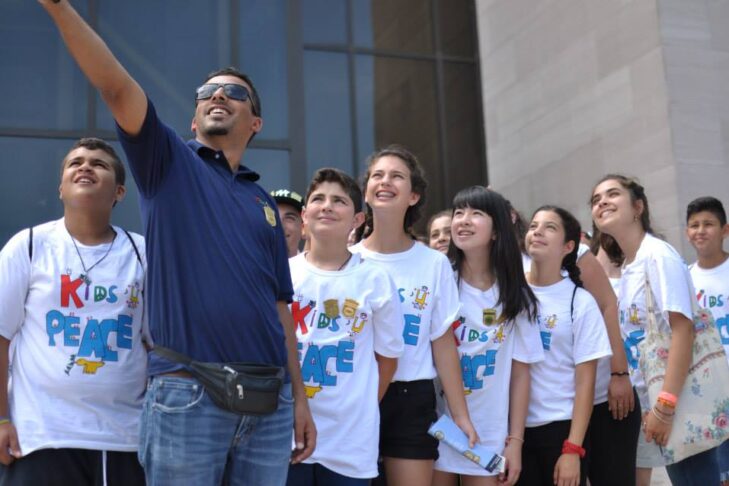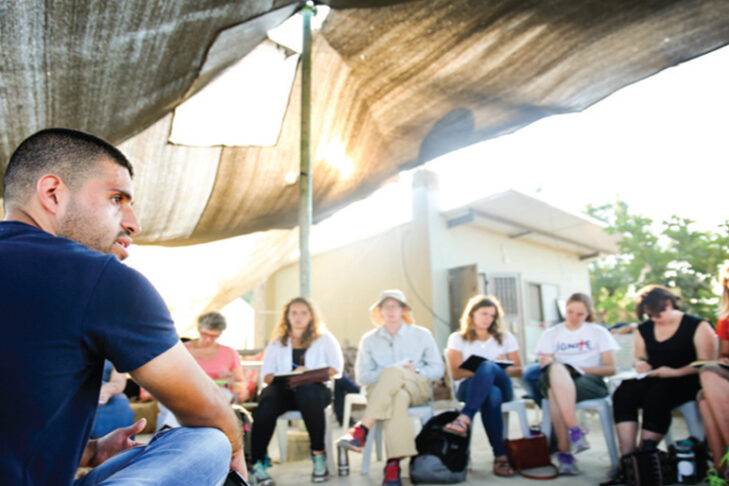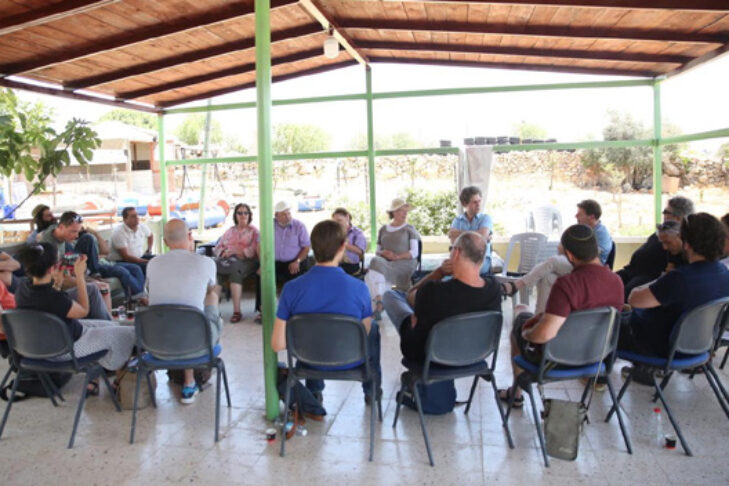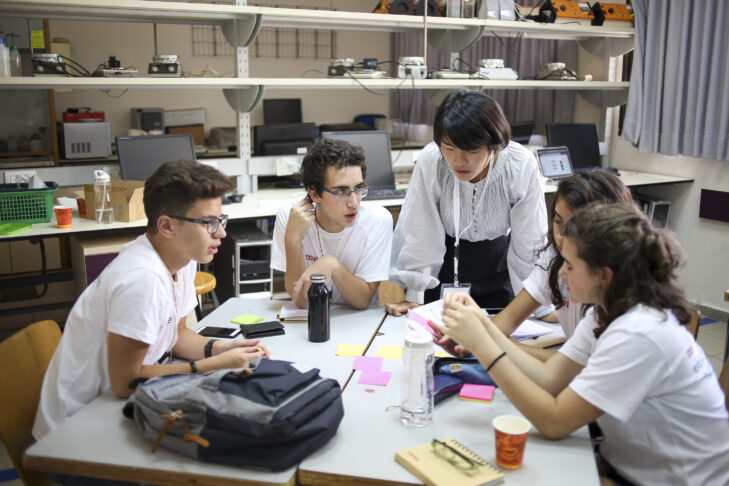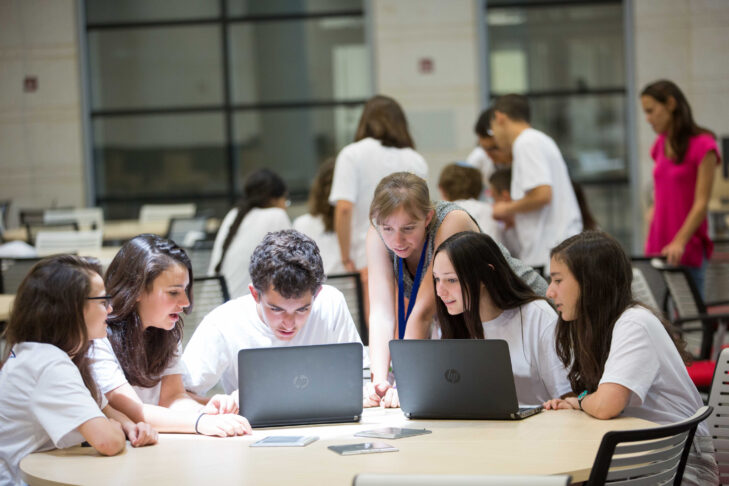In August 2018, the Jewish Community Relations Council of Greater Boston (JCRC) launched Boston Partners for Peace, an initiative that brings together Israelis and Palestinians in Israel with their peers in Boston. The participants are dedicated to building new bridges and forging connections in the name of peace and a two-state solution. Eli Cohn-Postell, JCRC’s director of Israel engagement, and Rachel Goldberg, program manager, recently spoke to JewishBoston about the project’s origin and its ongoing work.
One of the goals, said Cohn-Postell, is “to amplify the voices represented in grassroots projects for peace. Those voices need to be heard in the stories we tell ourselves about Israel and Palestine.” To that end, Boston Partners for Peace is a platform in which those voices are featured in Israel’s continuing peace narrative. Boston’s Jewish community has been a source of critical support for many trailblazing peace initiatives happening today in Israel.
Cohn-Postell and Goldberg noted that the organizations associated with Boston Partners for Peace tend to take a bottom-up approach to their grassroots work. They highlight the peace-building activities that are happening on the ground as opposed to favoring a political solution or top-down approach. Cohn-Postell explained that the bottom-up approach is modeled on the Good Friday Agreement in Northern Ireland in the 1980s and ‘90s. “The United States government invested billions of dollars in bringing together Catholics and Protestants in Northern Ireland,” he said. “Over the decades, they reached a third of the population through programs that are often cited as leading to the Agreement.”
Roots is one such organization, actively working in the West Bank, which incorporates the Northern Ireland model. Cohn-Postell said ROOTS “is doing something quite remarkable. Their members are Israeli settlers and Palestinians who are not citizens of Israel. People in that area almost never interact with each other, and ROOTS is breaking that taboo in powerful and diverse ways.”
Many of the organizations in Boston Partners for Peace have a connection to the Boston Jewish community. Kids4Peace, an ecumenical gathering of kids from sixth grade to high school, is based in Jerusalem with an active Boston office. Goldberg described the organization as “an interfaith youth group that uses religion as a springboard for conversation, as opposed to ignoring it as an issue that has the most divisive potential. Monotheistic faith traditions are used to launch conversations.”
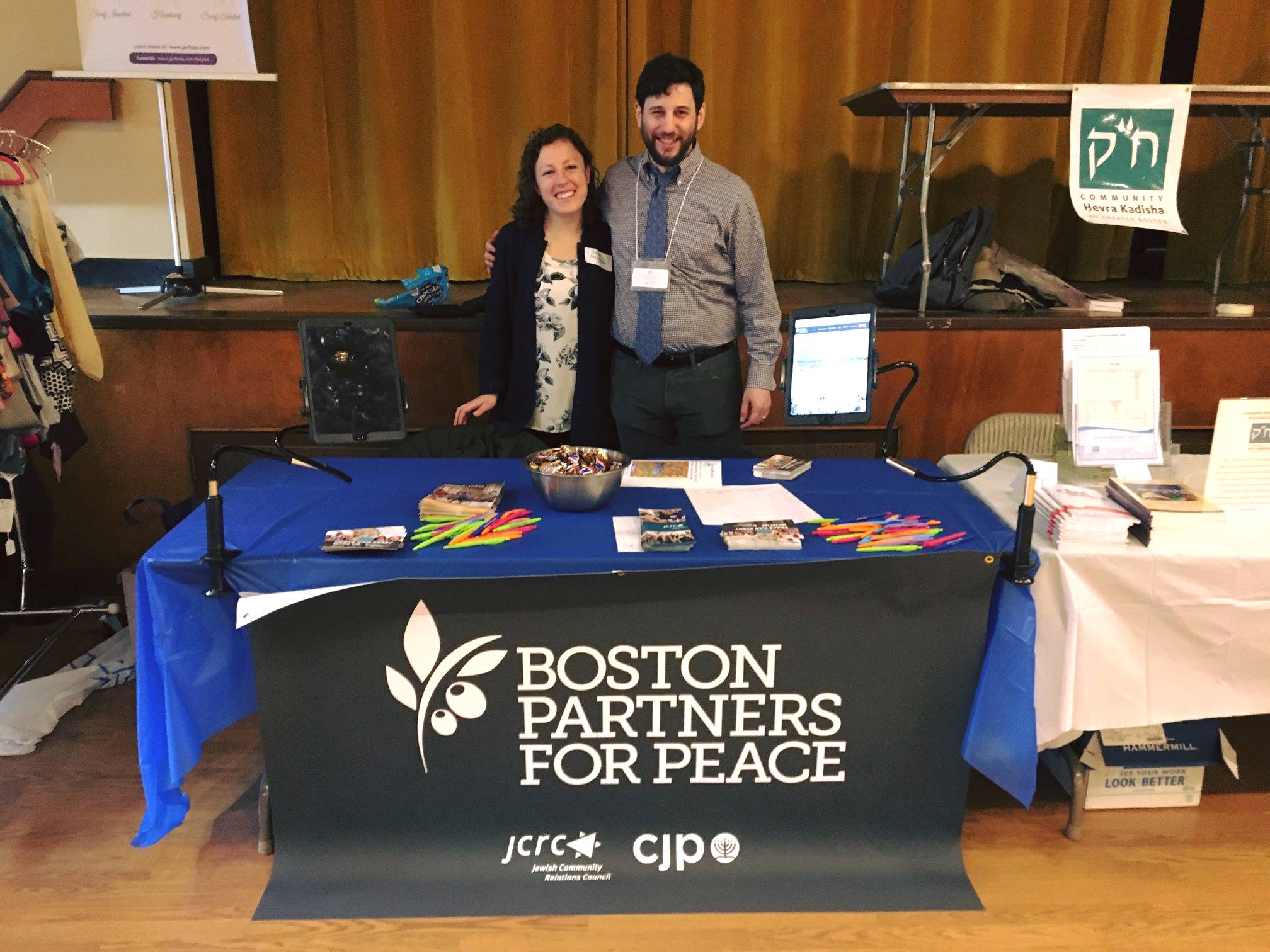
MIT-MEET—MEET is an acronym for Middle East Entrepreneurs of Tomorrow—is sponsored by MIT and takes place both at MIT’s Cambridge campus and in Israel. Based on the supposition that Israeli and Palestinian lives are “intertwined,” Israeli and Palestinian teenagers learn technology-based skills throughout the three-year program. Cohorts are evenly divided between men and women, as well as Israelis and Palestinians.
Hand in Hand, a joint bilingual educational system, is invested in bringing people to learn together who don’t always agree. Founded in 1998 with 50 children, the school now has six campuses where Israelis and Palestinians go to school together. Goldberg observed that Hand in Hand’s success is due in part because “one narrative doesn’t hold sway. The students learn together and hold different opinions. Their model serves as a guiding principle for the organizations on our platform.”
Seeds of Peace, a leadership program, brings together young adult Israelis and Palestinians annually at a camp in Maine. Cohn-Postell said Seeds of Peace “can take people outside of the conflict zone, which can be essential for the success of this work. The alumni network they have built is notably robust—participants maintain relationships across ideological and physical divides, even when they are back in the region. They have the ability to look back and ask, ‘How is this affecting our community, not just when we’re in summer camp? How are we changing the attitudes and values of those around us?’”
The majority of the groups that are connected to Boston Partners for Peace support the work of younger Israelis and Palestinians. “A big part of our program also focuses on adults in their 20s and 30s in Boston,” Goldberg said. “The goal is to create a future generation of leaders around the conflict. We do this over local Shabbat dinners and programs that feature Israeli and Palestinian speakers. We want to create a cohort of leaders that will educate their peers. The goal is to create a self-sustaining model of engagement.”
Both Cohn-Postell and Goldberg pointed out that Boston Partners for Peace avoids armchair theorizing. “This is a values-based choice for active Israel engagement within the Boston Jewish community,” said Cohn-Postell. “We’re enabling people to invest their time and energy in something they believe in. Our goal is to create a better Israel.”


